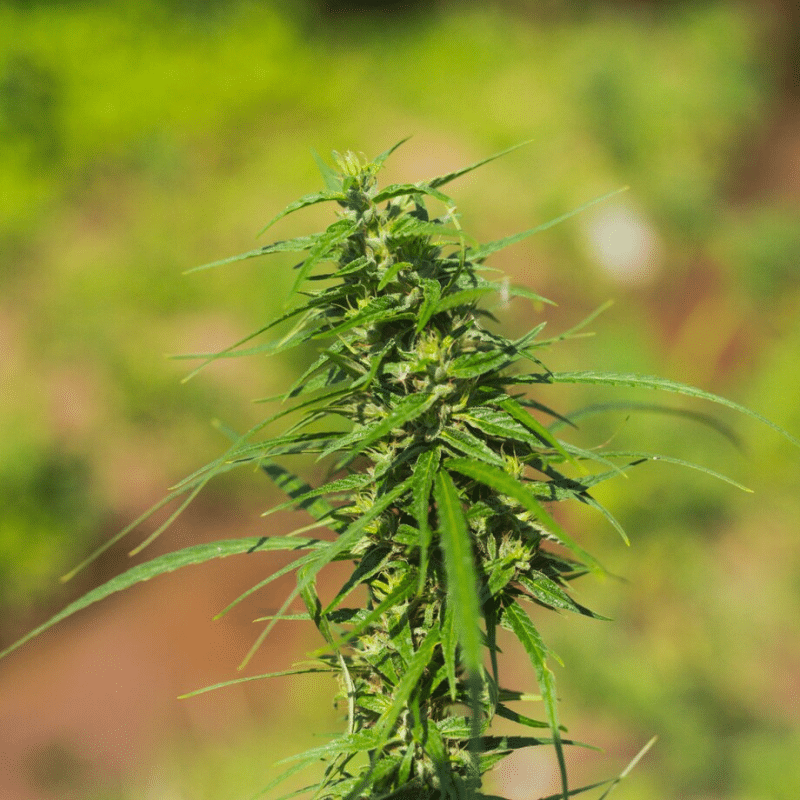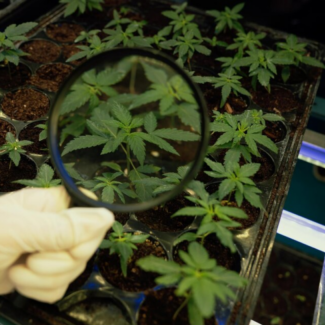Stay Compliant: A Guide to Recreational Cannabis Purchase Limits in California

Each state has its own requirements for cannabis purchases and the strictness varies. Some states have limits on edible potency, while others do not. Some states allow you to store more cannabis at home than you can carry in public, while others have one limit. Here’s everything you need to know about recreational cannabis purchase limits in California.
Understanding California's Recreational Cannabis Purchase Limits
Purchase limits are divided into two categories: recreational consumers and medical marijuana patients. While some states do not divide purchase limits by category, most, including California, set recreational marijuana purchase limits that are smaller than those allowed to medical marijuana patients.
Daily Limits for Adult Use
- Flower: Legal adults (defined as those over 21 years old) can purchase up to one ounce (28.5 grams) of cannabis flower per day. This is also the limit of cannabis you’re allowed to gift another adult.
- Concentrates: California has a generous definition of concentrated cannabis products and an 8-gram purchase limit. The state also has a recreational purchase limit of 1,000 mg of THC per day for non-edible products (for products including concentrates and topicals) which counts towards your purchase limits for concentrated cannabis products.
- Edibles: There is a recreational limit of 10 mg per serving of edibles with a package limit of 100 mg of THC that counts towards your marijuana concentrate limit.
- Plants: People over 21 can buy 6 immature cannabis plants per day. This regulation is slightly confusing because 6 plants is the limit you are allowed to possess per household, but you can buy more than 6 plants in a week. Want to give them away? You’re limited to gifting 6 plants at a time per recipient over 21 years old.
Not every county in California allows for the sale of recreational marijuana — some still prohibit cannabis sales. If you’re leaving major metropolitan areas, expect there to be gaps in where cannabis is available to you. Cannabis consumption is still allowed in private residences throughout the state.
Possession Limits for Recreational Marijuana
- Home grow: California limits recreational cannabis home growers to six plants per residence, no matter how many legal adults live there.
- Home possession: Adults over 21 are allowed to possess no more than 8 grams of marijuana concentrate and 28.5 grams of cannabis flower at one time. California is not a state that separates public possession from home storage; the possession limit stands no matter where in the state you are.
- Concentrates: Recreational purchases are limited to eight grams of marijuana concentrate.
How much marijuana you can buy is not affected by your residency. Visitors to the state are also expected to abide by the legal limits of possession. Out-of-state adults cannot buy or possess more than 28.5 grams of cannabis or 8 grams of concentrate.
Medical Marijuana Card Holders
Medical marijuana cardholders can be younger than recreational consumers, with a lower age limit of 18 years old.
- Flower: Medical marijuana patients are allowed to purchase medical cannabis in much higher quantities: up to 8 ounces of cannabis flower per day.
- Growing: There is no limit to how many cannabis plants a medical patient or designated caregiver may grow at home at once.
- Topicals/ Concentrates: Medical marijuana patients in California can purchase up to 2,000 mg of THC per day.
- Edibles: The purchase limit for edibles is the same for recreational and medical cannabis consumers: 10 mg THC per serving and 100 mg THC per package.
Equivalency Calculations for Cannabis Consumption
- 1 gram = 1,000 mg.
California limits recreational purchases of cannabis products to 28.5 grams of non-concentrated cannabis and 8 grams of concentrate. This is an equivalency: an ounce of flower or prerolls is seen as equivalent in dosage to 8 grams of concentrates, highly potent cannabis extract, or edibles, which contain concentrates
However, unlike other states, California does not use an equivalency calculation for its recreational purchase limits: it sets limitations in grams. Flowers, prerolls, kief, and the like all contribute to the gram limit of your non-concentrated category, while any and all extracts as well as edible, beverages, topicals, and tinctures, count towards your concentrated gram limit. There is a milligram limit for non-edible cannabis products, but those products also count towards the grams of marijuana concentrated limit.
Age Restrictions
Recreational licensed dispensaries in California are strictly prohibited from selling any kind of cannabis products to anyone under 21 or who visits without a legal ID. Selling or providing cannabis to minors has legal consequences, including jail time, fines, community service, educational classes, and even potentially the loss of a state-issued cannabis license.
Risks of Non-Compliance
Selling cannabis is similar to selling alcohol in the respect that regulatory non-compliance comes with harsh penalties. California has a long list of strict regulations that recreational marijuana businesses must comply with, or risk invoking the wrath of the state regulatory bodies.
- Regulatory Penalties:
- The only way the government can ensure businesses remain in compliance is to punish those that don’t. If your recreational marijuana company is found to be ignoring or breaking regulations, even on accident, your business faces a litany of problems, including hefty fines, legal fees, license suspensions, or even license revocation.
- Legal Liability:
- Non-compliance increases your risk exposure by putting your company in harm’s way for potential lawsuits or legal claims. This can include product liability claims if a package was mislabeled, general liability claims for unsafe workplaces, or even accusations of contributing to underage cannabis use from non-compliant packaging.
- Reputational Damage:
- Being found out of compliance is not just bad for your bottom line; it’s bad for your reputation too. Journalists and media outlets love to parade the story of a legal cannabis business found flaunting the rules — and any publicity is not good publicity. Having your business name associated with rule-breaking is bad for brand reputation and consumer trust. Cannabis is a crowded marketplace, and you don’t want your potential customers to associate your name with bad publicity.
- Financial Losses:
- Non-compliant businesses can be a source of revenue for state governments, and being found out of compliance comes with heavy financial implications. There are the initial fines regulatory bodies will levy on you, but potential legal fees add up quickly when you compound those fines with lost revenue from bad publicity, non-compliance makes your bottom line take a hit quickly.
Best Practices for Compliance
Clearly, compliance is foundational for successful cannabis businesses. But remaining in compliance with recreational marijuana legalization laws is not a one-person job: it takes an entire team to keep a business running smoothly and legally. Compliant businesses take a top-down approach to regulations, ensuring that every employee is empowered with the knowledge and the ability to keep a company operating within regulatory guidelines.
Employee Training
Your employees, particularly customer-facing employees, are crucial to your compliance success. This begins with robust training so every person in the store or behind the register knows the state purchase limits for recreational cannabis products and the required steps for age verification.
Providing information can include posting reminders at the point of sale, interactive training and testing for all employees on a regular basis, and creating a safe space to speak up if employees see dangerous behavior.
Point-of-Sale Systems
There are several point-of-sale systems in cannabis that can help you remain in compliance with recreational purchase limits. A POS system designed for cannabis will have adjustable or state-specific settings to ensure your business is abiding by regulations, including notifying cashiers when a customer is nearing or has reached their daily purchase limit and requiring IDs when necessary.
Since POS systems also help you track sales and keep records of customer information, finding cannabis-specific software can make it easier for you and your employees to remain compliant. Some systems even integrate with Metrc, which is mandatory in California.
Record Keeping
Purchase and possession limits can only be upheld if customer information is tracked and recorded. The right point-of-sale system will help you track customers from the time they walk in the door and scan their IDs to get into the time they check out with their products. But this information can contain personal information, and customers must trust that businesses will keep this safe. Adhering to data security best practices, including regular password changes and phishing training, is important.
Compliance Audits
Are you checking on regulatory compliance throughout your business? Compliance audits should be a regular task for your leadership team on a pre-determined cadence. Internal audits help you identify any areas of weakness and proactively address non-compliant behavior. If this task is burdensome to your already busy team, consider outsourcing it to external compliance auditors.
Risk Management Plan
Compliance is just one piece of the risk management puzzle — albeit, a big piece. A robust risk management plan helps you identify and address any areas of potential exposure for your business and take action, either now or in the future to deal with it. A risk management plan is a living document that should be created and edited in conjunction with business growth. Remember, a startup with rapid growth incurs different risks than a stable, established business does.
Stay Informed
Regulations in the cannabis industry are subject to change. While these changes are typically announced and forewarned, it can still be challenging for busy entrepreneurs to keep up with the changes and the implications for existing businesses. Perhaps tracking regulatory changes is the designated task for someone in your leadership team, like the compliance officer. Or perhaps you partner with other cannabis businesses to stay on top of industry updates and discuss evolving responsibilities together.
Product Liability Insurance
Product liability insurance is an important policy to have under your umbrella of cannabis insurance. In a nutshell, the policy protects businesses from loss arising from litigation, specifically litigation that a product they manufactured or sold caused personal injury or other damage.
In an industry like cannabis, where state regulations directly clash with federal law, this policy is vital to have because it can include claims related to product defects, recalls, adverse reactions, or inaccurate labeling. It helps companies cover the cost of legal defense, settlement claims, compensation to affected parties, attorney fees, and even hospitalization fees.
Compliance is key for California cannabis companies — without regulatory compliance, you’re building a business on a crumbling cliff. Compliance is the rock-solid foundation that launches you to long-term success, and it starts with your front-of-house staff understanding recreational cannabis purchase limits in California. But protecting your business certainly doesn’t end there.
Protecting your cannabis company can seem confusing; however, we’re a full-service insurance brokerage working with carriers worldwide to offer you the best coverage possible. We’re here to help! Please reach out to us today by email info@alpharoot.com or calling 646-854-1093 for a customized letter or learning more about your cannabis insurance options.


